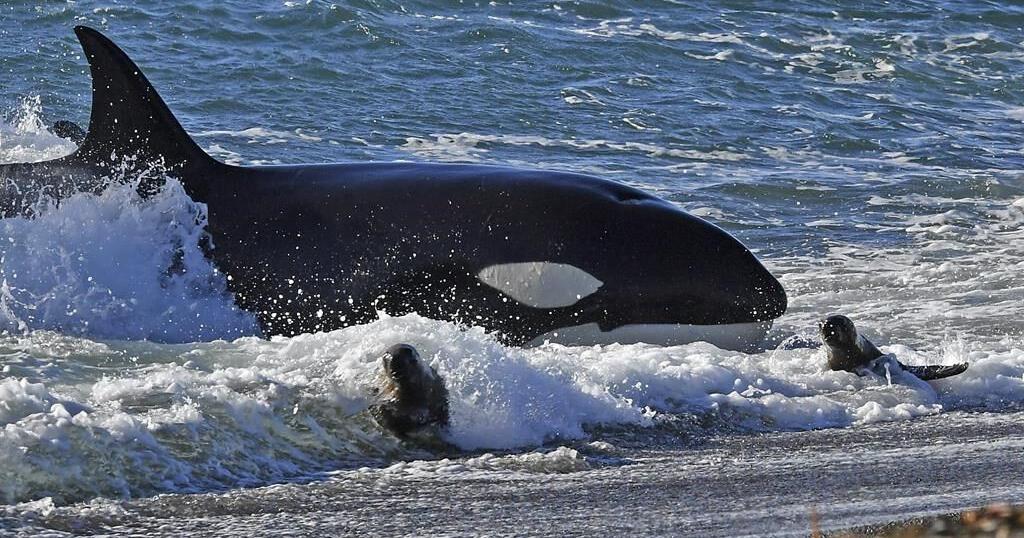HALIFAX – A new study says persistent organic pollutants in waters off Canada’s East Coast are “dangerously high” for killer whales and put them at an elevated risk for serious immune-system and reproductive problems.
The study led by McGill University scientists, which looked at levels of polychlorinated biphenyls, or PCBs, and pesticides in skin samples collected from six species of whales and dolphins, found that toxin levels in killer whales are double the threshold that scientists believe causes reproductive failure.
The samples collected south of Newfoundland between 2015 and 2022 showed that humpback, minke and fin whales, as well as dolphins, had lower levels of persistent pollutants than did killer whales.
Lead researcher Anaïs Remili says toxins attach themselves to fatty issue, such as the blubber of whales and dolphins.
“These molecules … will stick to fat and aquatic organisms that have a lot of fat in them,” she said in an interview Thursday, adding that chemicals transfer from animal to animal as they move throughout the food chain. Killer whales are particularly vulnerable to heightened toxin levels because they are apex predators.
Increased toxins are just one of several environmental threats killer whales face, including net entanglements, vessel strikes and difficulty finding food because of changing ocean temperatures. Remili said its difficult to come up with a hierarchy of the different threats for the killer whale specifically, adding that many other whale species face similar challenges.
Though there is no data available on toxin levels in killer whales, Remili said there is still some hope contaminants in the species can decrease over time. Her study cites data monitoring of toxin levels in beluga whales over several decades, which indicated a downward trend in toxin concentration. That study, she said, gives her some optimism for the future of killer whales.
“We hypothesized in the study that because (toxin levels) have been going down in all these cetacean species, it has probably gone down (in killer whales) … but there is hope these contaminants will decrease with further efforts,” Remili said.
Though their use has long been banned in Canada, the chemicals linger in both the environment and living tissue, and in aquatic ecosystems where carnivorous marine species are more likely to be exposed.
Remili cited the important of strong regulations to prevent more toxins from entering the water.
This report by The Canadian Press was first published Nov. 7, 2024.

























